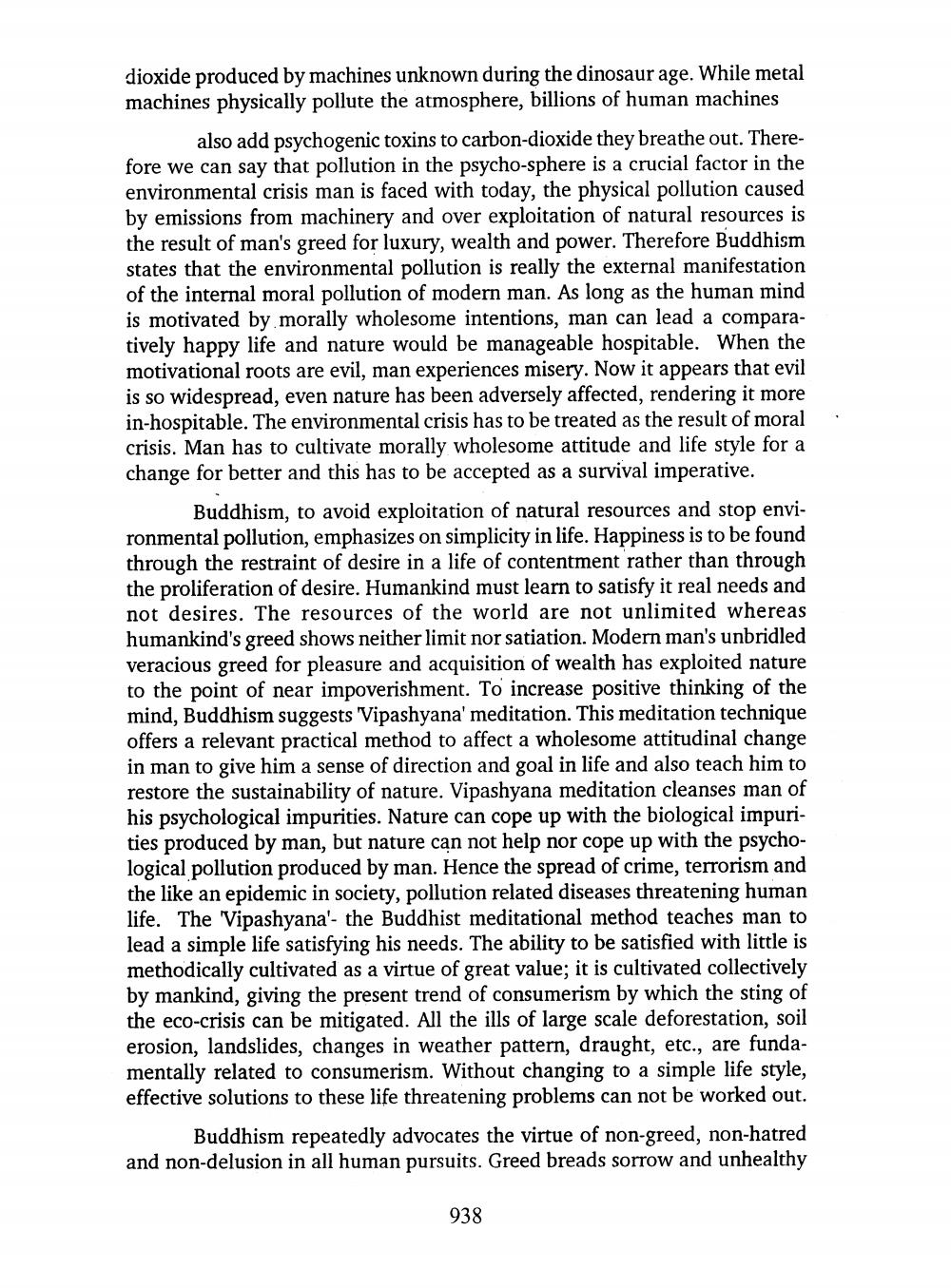________________
dioxide produced by machines unknown during the dinosaur age. While metal machines physically pollute the atmosphere, billions of human machines
also add psychogenic toxins to carbon-dioxide they breathe out. Therefore we can say that pollution in the psycho-sphere is a crucial factor in the environmental crisis man is faced with today, the physical pollution caused by emissions from machinery and over exploitation of natural resources is the result of man's greed for luxury, wealth and power. Therefore Buddhism states that the environmental pollution is really the external manifestation of the internal moral pollution of modern man. As long as the human mind is motivated by morally wholesome intentions, man can lead a comparatively happy life and nature would be manageable hospitable. When the motivational roots are evil, man experiences misery. Now it appears that evil is so widespread, even nature has been adversely affected, rendering it more in-hospitable. The environmental crisis has to be treated as the result of moral crisis. Man has to cultivate morally wholesome attitude and life style for a change for better and this has to be accepted as a survival imperative.
Buddhism, to avoid exploitation of natural resources and stop environmental pollution, emphasizes on simplicity in life. Happiness is to be found through the restraint of desire in a life of contentment rather than through. the proliferation of desire. Humankind must learn to satisfy it real needs and not desires. The resources of the world are not unlimited whereas humankind's greed shows neither limit nor satiation. Modern man's unbridled veracious greed for pleasure and acquisition of wealth has exploited nature to the point of near impoverishment. To increase positive thinking of the mind, Buddhism suggests 'Vipashyana' meditation. This meditation technique offers a relevant practical method to affect a wholesome attitudinal change in man to give him a sense of direction and goal in life and also teach him to restore the sustainability of nature. Vipashyana meditation cleanses man of his psychological impurities. Nature can cope up with the biological impurities produced by man, but nature can not help nor cope up with the psychological pollution produced by man. Hence the spread of crime, terrorism and the like an epidemic in society, pollution related diseases threatening human life. The Vipashyana'- the Buddhist meditational method teaches man to lead a simple life satisfying his needs. The ability to be satisfied with little is methodically cultivated as a virtue of great value; it is cultivated collectively by mankind, giving the present trend of consumerism by which the sting of the eco-crisis can be mitigated. All the ills of large scale deforestation, soil erosion, landslides, changes in weather pattern, draught, etc., are fundamentally related to consumerism. Without changing to a simple life style, effective solutions to these life threatening problems can not be worked out.
Buddhism repeatedly advocates the virtue of non-greed, non-hatred and non-delusion in all human pursuits. Greed breads sorrow and unhealthy
938




